Challenges of Reconciliation for Payments Businesses
We are all familiar with reconciling outgoing payments against our bank accounts. That is simple enough. For the most part these are expenses. You know who is to be paid and you know why the payment is due. Slightly more challenging is reconciling incoming payments against a bank account. Generally these are settlements made by clients. It is less apparent to what this activity is related given the scant details the transaction may carry at the bank. What organization is sending you this money? To what transaction or deal is this money associated? We may struggle, but we put two and two together and associate the client activity with the incoming payment. Both sides of this – the outgoing and the incoming payments – are key elements in a financial reconciliation.
Now consider this. What if your product or service is moving money on behalf of clients? What if what had previously been a purely financial reconciliation is now an operational reconciliation potentially affecting the quality of client service? This is the case with businesses operating in the Payments space. While their service may seem simple, essentially sending messages that move money, their challenges are interesting to consider because all the concerns for transaction reconciliation are tremendously amplified. If reconciliations are not accurate and almost immediate, there is significant risk. What are in the balance are not just individual client transactions, but also client relationships and the financial integrity and perhaps viability of the operation.
In Search of the Balanced Cash Flow
Like it or not, Payments are viewed more and more as a commodity service. As a commodity, the relationship between the Payment business and the client may not be particularly strong. They can get their commodity from a list of trusted providers. Margins on such transactions are usually fairly small. As a result transaction volumes are needed to allow for meaningful profit. Taken all together, the flow of incoming settlements and outgoing payments must be managed to minimize risk to the business by remaining cash flow neutral. Ideally, payments should not be released until settlement is made with cleared funds.
In order to achieve a balanced cash flow at the transactional level, the incoming settlement leg must be reconciled and attributed to the client and transaction in flight. Tools to recognize incoming funds and management their application to open transactions are essential. Any inefficiency or inaccuracy in that process can delay product and service delivery and impact the client relationship. In a Payments business, ensuring a quality client experience is tremendously important given the commodity dynamic. A transaction gone wrong is probably a lost client!
When Money Is Inventory
Of course any inventory is money in the valuation sense. Those widgets in the warehouse are worth something; there is so much money wrapped up in those widgets. For Payments businesses, money is inventory in the literal sense. The raw product is the purest form of liquid asset: money. Cash reconciliation is extremely important so that what could be considered “inventory logistics” is handled appropriately via Treasury and cash management activities. Those actions constitute “just-in-time” inventory management for businesses offering Payment services.
 To further complicate things, payments made by clients in settlement of transactions can be considered “inventory” as well – but only when full attribution (to the client and underlying transaction) of the incoming funds has been made. Depending on how quickly the relationship can be made, the realization of settlement payment to inventory can be extremely quick. As a curiosity, imagine the widgets again. What does it take to convert settlement assets back into physical widgets on a shelf? In the Payments world this transition should be very short. Only timely insight allows for prevents this transition.
To further complicate things, payments made by clients in settlement of transactions can be considered “inventory” as well – but only when full attribution (to the client and underlying transaction) of the incoming funds has been made. Depending on how quickly the relationship can be made, the realization of settlement payment to inventory can be extremely quick. As a curiosity, imagine the widgets again. What does it take to convert settlement assets back into physical widgets on a shelf? In the Payments world this transition should be very short. Only timely insight allows for prevents this transition.
Cash Management to satisfy the Payments business can only be conducted properly when both incoming and outgoing transactions are fully reconciled and activities against those accounts are legitimized. Timely reconciliation is demanded to the intraday level to allow insight that drives inventory management for the Payments-based business.
Dependent Partners in Service Delivery
Payments businesses usually operate globally and, believe it or not, they are directing payments out of and receiving settlements into bank account accounts like any business would. They just do this by factors over and above the typical organization. They cultivate a network of banking partners to deliver payments to markets and corridors around the globe. This requires hundreds or thousands of bank accounts globally. Now consider the earlier problems previously mentioned in terms of cash management and balanced cash flows. Money comes in here. Money is directed there. Money needs to be moved to satisfy inventory demands. There must be both timely operational and financial reconciliation. When the number of accounts and transactions volumes is large – as is the case in the Payments business – there must be efficiency in the reconciliation and insight process so these key activities can be conducted.
That is a problem in itself, however, when you consider that each institution has a different means of sharing activity against the accounts – different protocols to get bank statements, different formats for transaction details, different capabilities in sending reliable details to ease reconciliation – the challenge of reconciliation is significant. A toolset that allows for agility in establishing new banking partners and opening new accounts quickly against those needs without running change projects is a must.
Multi-Region / Multi-Entity
As Payments companies typically operate globally to facilitate payments around the world, those organizations naturally deliver their service through multiple legal entities. This necessitates a number of inter-company transfers especially when service delivery and financial ownership of a transaction transitions between the legal entities and related operations in the course of processing. For every logical transaction with the client, there may be multiple internal transactions tied to various legal entities. These transactions as well need proper reconciliation before the accounting of the legal entities and parent organization can be settled. The volume of transactions and timing of this reconciliation (e.g. at period end) can make this work challenging. The process and tools must be up to the task.
The Need for Insight
Other challenges exist for the Payments business – again amplified when compared to other forms of business. A Payments business is a bigger target for fraud. Only when insight into reconciliation state and exceptions realized in an accurate and timely way can fraud be managed. Capable reconciliation tools are demanded to counter this source of operational and reputational risk.
Concerns that have their basis in regulatory and licensing requirements are significant for Payments businesses. Things like Average Daily Transaction Limits (ADTL), transaction escheatment, Dodd-Frank, EMIR and equivalent reporting can only be accomplished when the necessary inputs from a robust reconciliation process are available. Failure to comply with these requirements can put the business in jeopardy.
We Are All Payments Businesses
The truth of it is that the concerns of the Payment business should not be unique. Their concerns should actually be the same concerns for any business striving for financial and operational integrity. We all need insight into financial standing and operational service delivery. The only real difference (aside from regulatory) is that a Payment business may have more at stake when transaction reconciliations are challenged in timely execution and accuracy. In that sense, we should all appreciate the fundamentals of concern exemplified and amplified in the Payment business and take on board the importance of the reconciliation function and enabling toolset in any business environment.
Jeremy Shanahan is ReconArt’s Vice President of Business Solutions. He is responsible for product strategy and coordinating product delivery for the global organization. Jeremy has over 25 years of experience in enterprise architecture, software design and implementation of global, financial-focused software technology solutions.

 follow our blog
follow our blog
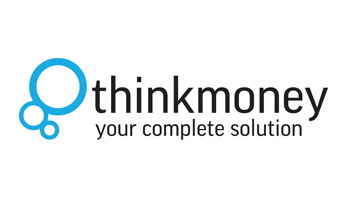
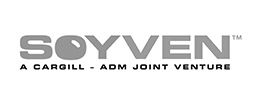

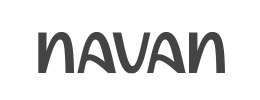




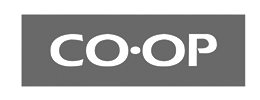
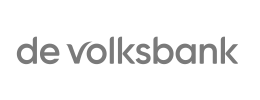



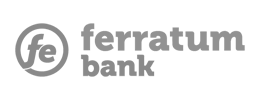
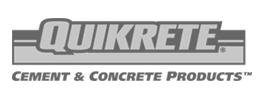

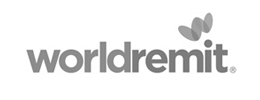




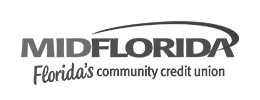
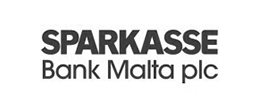
 Quick response
Quick response

